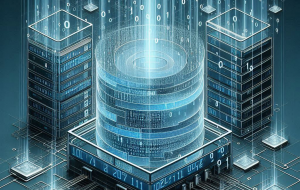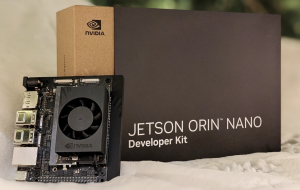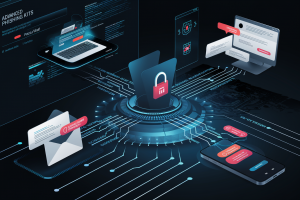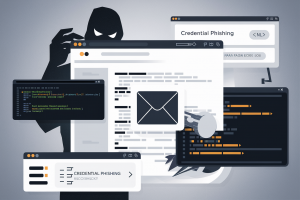How Apple has changed with Jobs’ absence : For better or worse?
![]() Don’t you find it funny when someone publicly swears to never to do something, but then has to eat their own words? If you have been paying close attention to the tech industry, one company instantly pops into mind – Apple.
Don’t you find it funny when someone publicly swears to never to do something, but then has to eat their own words? If you have been paying close attention to the tech industry, one company instantly pops into mind – Apple.
Yes, the company that brought us iDevices, iMacs and so many other coveted gadgets. If you are an Apple fan and easily takes offense when someone says something bad about your beloved company, do not proceed to the next paragraphs, as this article will surely infuriate you.
So why did I exactly describe Apple as one to eat its own words? Read on.
Apple founder Steve Jobs is regarded as an eccentric genius with a temper, and not one to hide it if something displeases him. Jobs was known to blatantly bash competitors’ products just to point out how great his products were compared to others’. Despite his eccentricities, Jobs also had this charm that can convince anyone that product A is better than product B, or that product X is something you need, even if you don’t.
Jobs once declared war on Android, swore off making bigger phones and smaller tablets, but have you noticed anything with Apple products lately?
How Apple has changed since Jobs’ death
.
Stylus
“[I]f you see a stylus, they blew it,” Jobs stated during the iPhone OS 4 event back in 2010. He made it clear; a stylus was something not needed for a touchscreen device because it’s easy to lose. Though Jobs abhorred the stylus, Apple used to sell a stylus compatible for use on its iDevices. The stylus was made by another company, and though it’s no longer available in the Apple Store, you can still find an iDevice-compatible stylus online or retail shops that sell smartphone accessories. And for those with physical impairments, Apple endorses the Griffin MouthStick Stylus.
Yet the US Patent and Trademark Office published a patent filed by Apple about an “Input device having extendable nib.” Though it was not called a stylus, the patent describes a stick-like device with an extendable tip that would enable the user to draw lines of varying widths and shapes. Also, the device will have on-board sensors for motion detection and a light sensor for sampling real-world colors.
Despite it being futuristic and having more functions that your usual stylus, a stylus is still a stylus. Though the patent doesn’t necessarily mean that Apple will be releasing an iDevice with a stylus, it’s enough to get the rumor mill churning with speculations that the next iPhone will come with a stylus.
![]()
.
Bigger or smaller iDevices
Phablets were abundant in 2013. Almost every phone manufacturer released a smartphone with a bigger screen, and offers more functionality than a smartphone. Another trend from previous years is the rise of small tablet, or those having screens 7-inches or smaller, but not containing all the features to be considered a phablet.
Despite the popularity of bigger smartphones and smaller tablets, Jobs once stated that Apple will not be following the trend. First, because he believes that a 3.5-inch screen is the perfect size for a phone, held comfortably with one hand. As for the smaller tablet size, Jobs stated that 7-inch tablets do not have sufficient screen area and everything looks pinched. In short, Jobs felt Apple’s phone and tablet were of the perfect sizes.
Then the iPhone 5 and the iPad mini were released. The iPhone 5 has a 4-inch screen. Though it’s not as big a what other OEMs offers, it still bigger than the original screen size. So even if Apple keeps saying that they are not following the trend that the likes of Samsung has set, it is. For the iPad mini, at nearly 8 inches it still proves that the original iPad size was not the final tablet size.
Despite Tim Cook’s explanation that the iPad mini is not a 7-inch tablet and is not a compromise, it certainly follows the trend of providing tablets in varying sizes to make consumers happy.
![]()
.
Going softie on Android
“I’m going to destroy Android, because it’s a stolen product. I’m willing to go thermonuclear war on this,” and “I will spend my last dying breath if I need to, and I will spend every penny of Apple’s $40 billion in the bank, to right this wrong.” This was Jobs’ dying wish, as noted by Walter Isaacson’s in Jobs’ biography.
Though he vowed to go thermonuclear on Android, it seems Apple’s war against Android may soon come to an end. If Jobs’ was alive, he may never have sat down with Samsung to negotiate things in the hopes of ending their legal battle. He would make sure that Samsung’s products get banned or demand the rival pay licensing fees for all the things Jobs says it copied from Apple. As for Android, the same rule will apply, and Jobs would do whatever he could to get Android users to switch to Apple products.
But things may soon change if reports are to be believed that Apple is thinking of launching an iTunes app for Android. According to a report from Billboard.com, Apple’s digital downloads have significantly dropped as more people now subscribe to streaming services like Spotify and Pandora. Though Apple already offers a streaming service known as iTunes Radio, Apple wants to tap into the millions of Android users, and their wallets, by offering iTunes for Android. Though it wasn’t clear what an iTunes on Android app would look like, it would probably be a way to make exclusive iOS apps available for Android, or a way for Android users to use iTunes to download music, movies or videos.
Apple representative declined to comment on the issue, but it’s nearly certain that if Apple did launch iTunes for Android, Jobs will be rolling in his grave.
photo credit: mxing✪m via photopin cc
photo credit: Camillo Miller via photopin cc
photo credit: @NickyColman via photopin cc
A message from John Furrier, co-founder of SiliconANGLE:
Your vote of support is important to us and it helps us keep the content FREE.
One click below supports our mission to provide free, deep, and relevant content.
Join our community on YouTube
Join the community that includes more than 15,000 #CubeAlumni experts, including Amazon.com CEO Andy Jassy, Dell Technologies founder and CEO Michael Dell, Intel CEO Pat Gelsinger, and many more luminaries and experts.
THANK YOU











